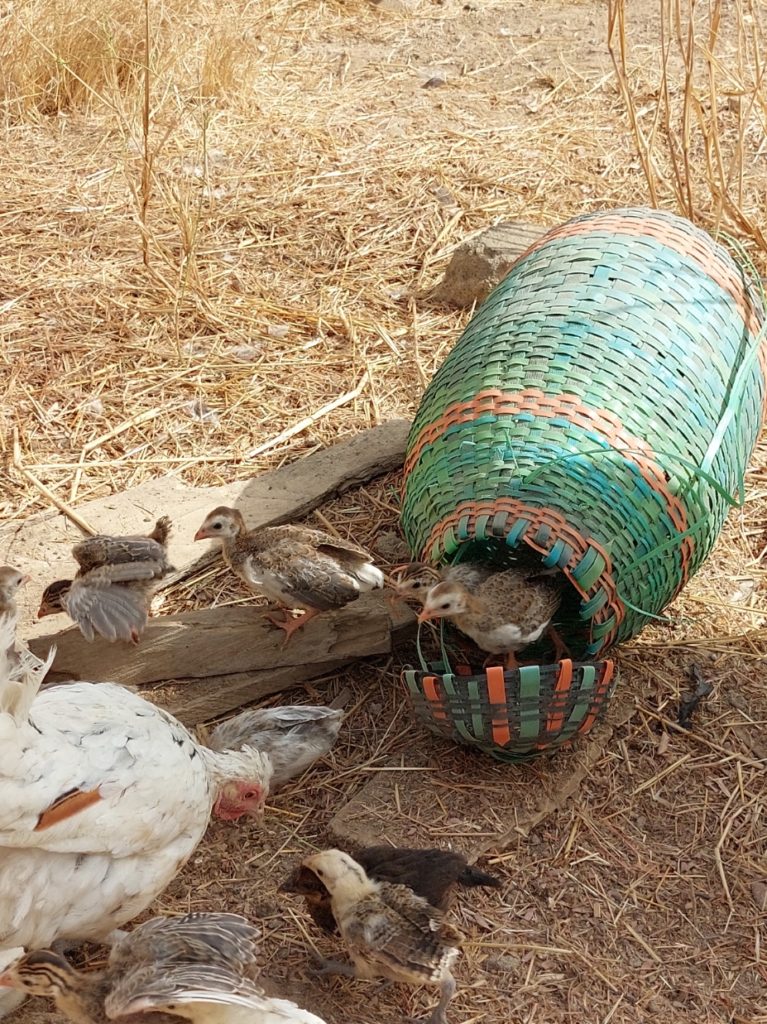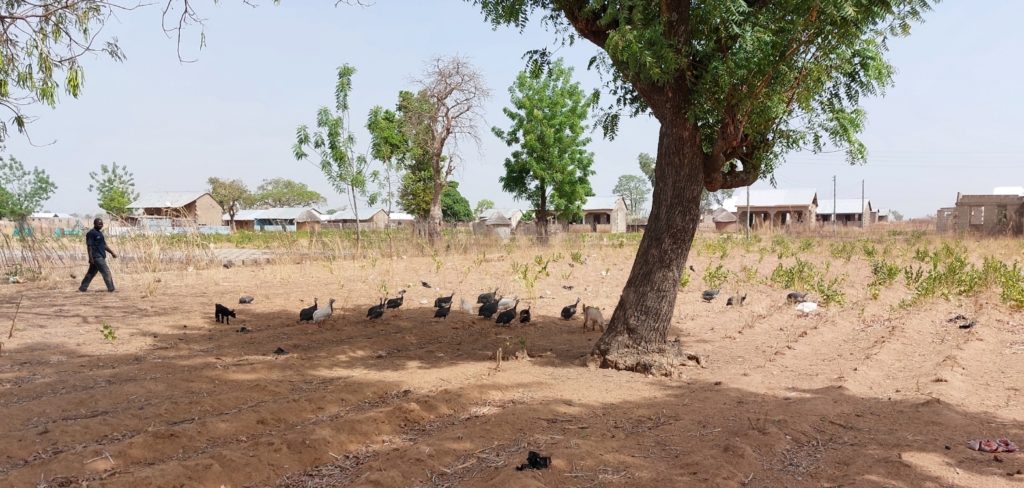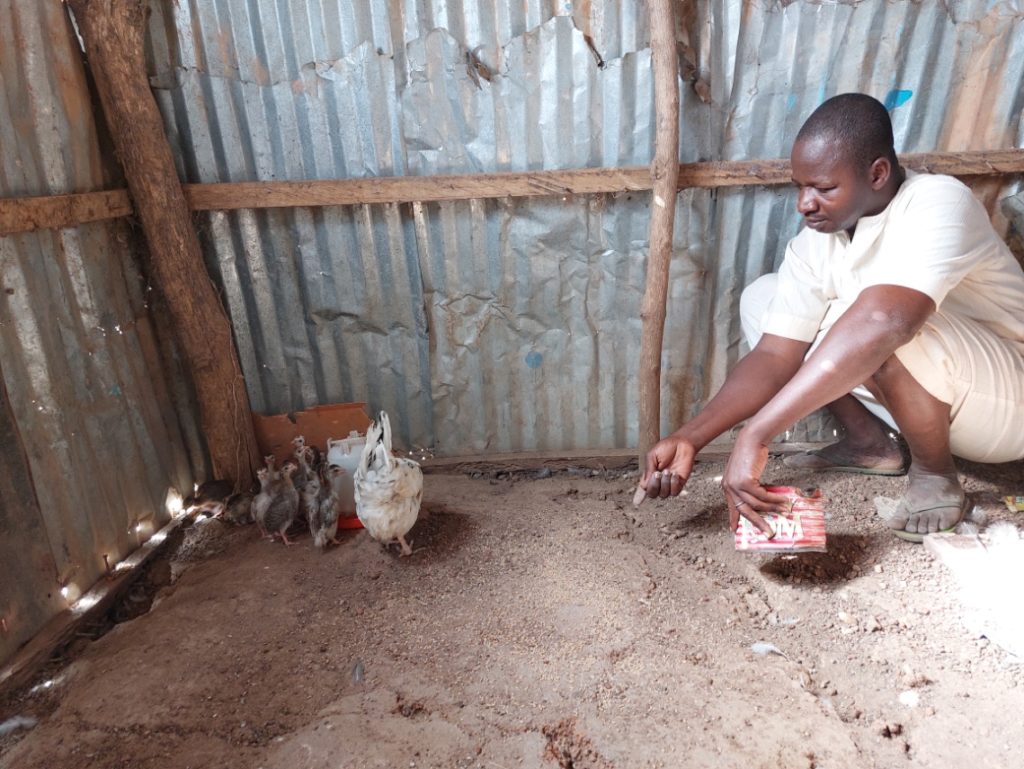
One of the most important victims of many global challenges we face today is our food chain. Rising populations, climate change and global pandemics all serve to increase the pressure on our agricultural systems. This pressure is often felt even more keenly in low to middle income countries where, combined with high levels of poverty, it can significantly hamper nutrition, health and socioeconomic status. Research that can offer farmers maximal production, animal health and welfare is therefore at a premium, helping to create sustainable systems going forward to meet future challenges.
Guinea fowl might be a recent gourmet addition to the UK poultry market, promoted as a leaner alternative to chicken; however, for generations, it has played a much larger role in its native continent of Africa. Alongside nutritional benefits, the sale of eggs and meat can provide valued income that supports families through the lean season, and which can pay for expenses such as school fees. In Ghana the fowl are also of vital social, cultural and religious importance, making their long-term sustainability a vital concern.
The farming industry in Ghana is dominated by smallholders: usually single-family operations that lack the technical and financial resources of their larger competitors. The popularity of guinea fowl with smallholder farmers in Ghana is partly a result of their biology. They are resistant to most poultry diseases, making them much easier to care for than comparable poultry species. For farmers with extremely limited access to formal veterinary services, this can make a significant difference in their viability. However, juvenile fowl mortality before 6 weeks of age is very high, ranging from 60-100%. This constrains the number of guinea fowl that can be sold, posing a substantial challenge that is even more acutely felt on smaller-scale farms. A project with Professor Karen Spencer, of the School of Psychology and Neuroscience, hopes to address the issue of juvenile mortality, helping to improve the stability of guinea fowl farming as a source of income and nutrition for smallholders.

The project marks a new collaboration between the University of St Andrews and the Roslin Institute, Edinburgh, through Professor Appolinaire Djikeng, an expert in livestock genetics and genomics. Professor Spencer brings expertise in avian physiology, behaviour and development, and is also Principal Investigator at the Mechanisms of Behaviour (MoB) Lab.
The MoB Lab are a group of researchers based in the School of Psychology & Neuroscience interested in understanding the links between the brain, physiology and behaviour. Through the study of several avian species, the Lab works to understand how all these factors interact to affect an individual’s ability to respond to challenges such as climate change, stress and anthropogenic disturbance. In recent years, they have focused on the longer-term impacts that challenges during development can have on health, survival and welfare in a range of species.

This work includes a collaboration with the University for Development Studies in Tamale to determine the factors that impact productivity and welfare in guinea fowl farms in Ghana. The project also benefits from the expertise in guinea fowl breeding of Dr Iddriss Abdul-Rahman of the University for Development Studies. The new and important links with this African institution are vital not only for their expertise in guinea fowl biology, but also for the deep links they share with the farmers.
Working with a network of smallholder farmers in Ghana set up by Dr Abdul-Rahman, the group’s aim is to understand the factors that contribute to juvenile guinea fowl mortality in their breeding systems. Through this research, it will be possible not only to identify best practice for farmers and to determine what makes a resilient fowl – our current ignorance of which is a significant obstacle to guinea fowl farming at every scale – but to make suggestions for cost effective interventions that could enhance family and maternal health.
By collecting and analysing data on how well current husbandry protocols perform, tracking health and survival of the birds, it will be possible to gain a better understanding of the smallholder farming as it stands today. The importance of guinea fowl to the nutrition of these farmers and their families, many of whom live in poverty, cannot be overstated. Not only does this project have a significant impact on the welfare of animals, but also on the sustainability of a fragile but essential way of farming in Ghana and the whole of sub-Saharan Africa, with implications for all global communities reliant on farmed avian meat and egg products.

Convincing farmers to change their husbandry protocols in line with the group’s findings is one of the biggest hurdles in translating this vital research into real-world change. By collaborating with new and existing partners in Ghana, their research can benefit from the important connections between institutions like the University for Development Studies and the smallholder farms that could benefit greatly from these developments.

